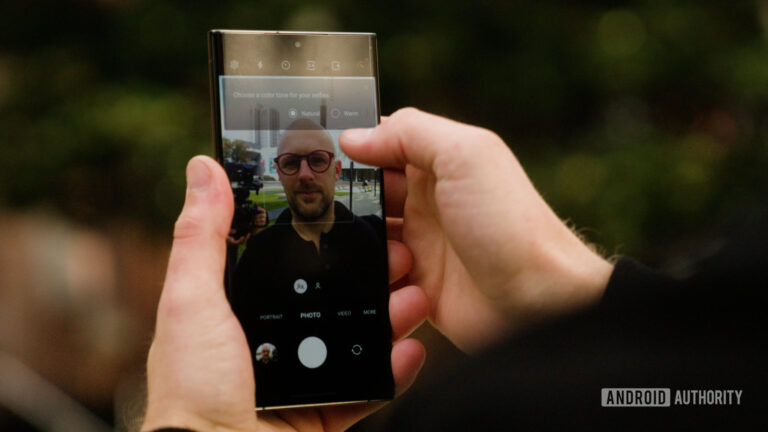
[ad_1]

Harley Maranan / Android Authority
There is no denying some selfies are better than others. Are you trying to take the best selfies you can? There is more to it than simply pointing the camera at your face and pressing the shutter button. Today we’ll show you how to take a good selfie in a step-by-step guide that will take your images to the next level. Your friends, family, and followers are in for a treat!
First read: Photography terms you should know
Lighting is key
The word “photography” means “drawing with light” in Greek. Lighting is as essential in selfies as it is in any photography category. Make sure you have a good light source for your selfies, and you’ll be rewarded with a much better image. With more light, the camera can lower the ISO and provide a faster shutter speed. This will result in much less digital noise and a more crisp image. Everything will look clearer, and even colors will look better.
We know it’s not always easy to catch the best light, depending on your surroundings, but try your best. We advise shooting images close to windows if you’re indoors. At the very least, you should ensure artificial lighting is hitting the subject, which would be yourself, in this case.
Sometimes really harsh lighting can also affect the look of your selfies. It increases the contrast and can create both dark shadows and blown-out highlights. In addition, harsh lighting can make people squint. This makes for a less-than-favorable look. The sun is a potent light source, so try to move to an area where the sunlight isn’t hitting you directly. This could be under a tree, or next to a wall.
Play with angles
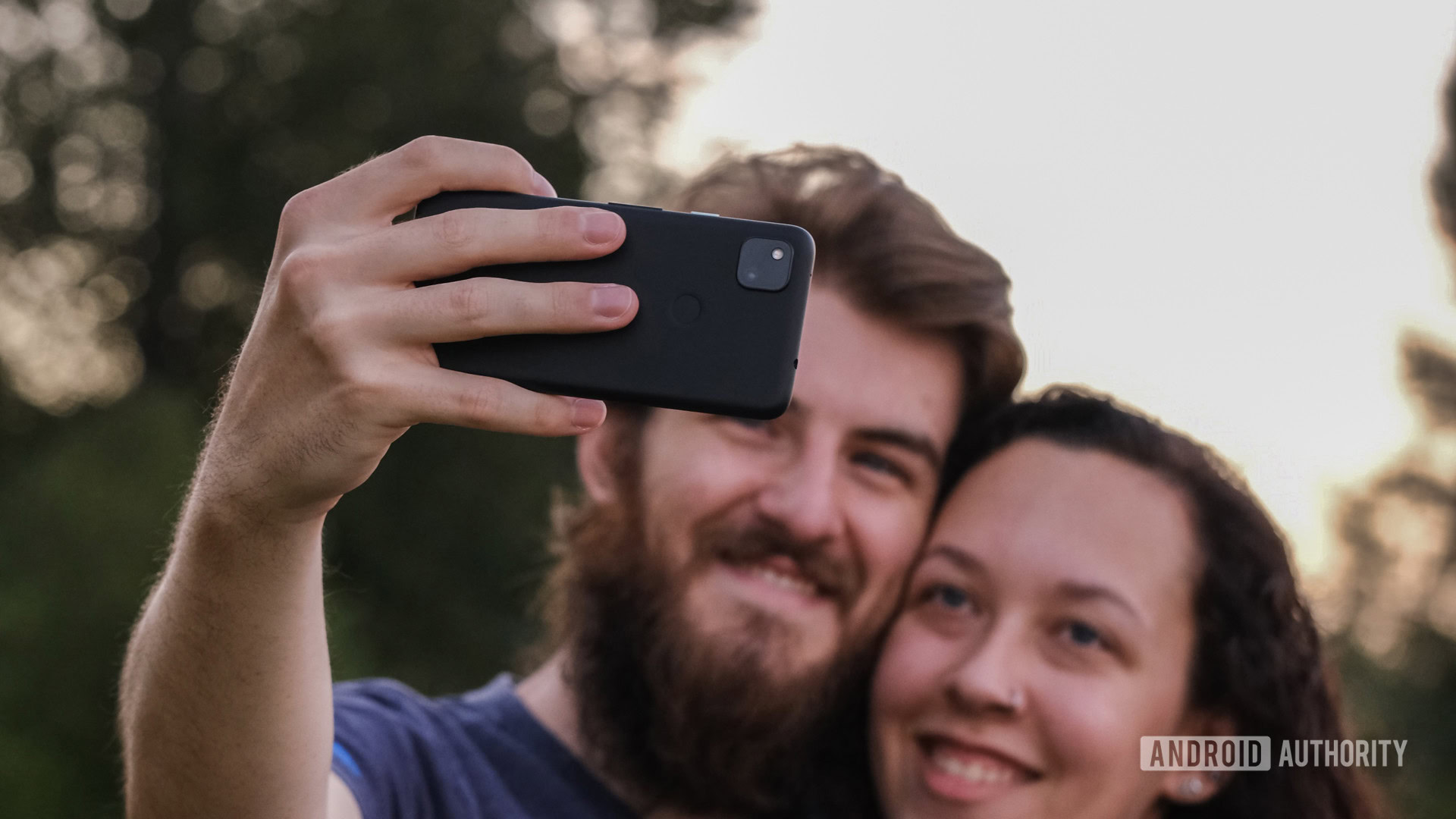
David Imel / Android Authority
A lot of the work in good photography is finding a good angle. Experiment with different angles to see what works best for your selfie. Try tilting your head to one side, holding the camera above your head, or angling it slightly downwards for a more flattering shot.
Models are often very conscious of their “best angles.” If you have never put thought into this concept, look through your previous selfies and check which images you think look best. Keep an eye on which angles suit you best, and try to use them more often.
Watch your expression
Selfies are all about people, which makes expressions very important. Of course, you want to ensure your expression suits the situation or environment. Try a large smile for happy moments, or a subtle one for a more casual look. If you’re trying to convey a more serious look, try a half-smile or a more stoic expression.
Strike a pose!
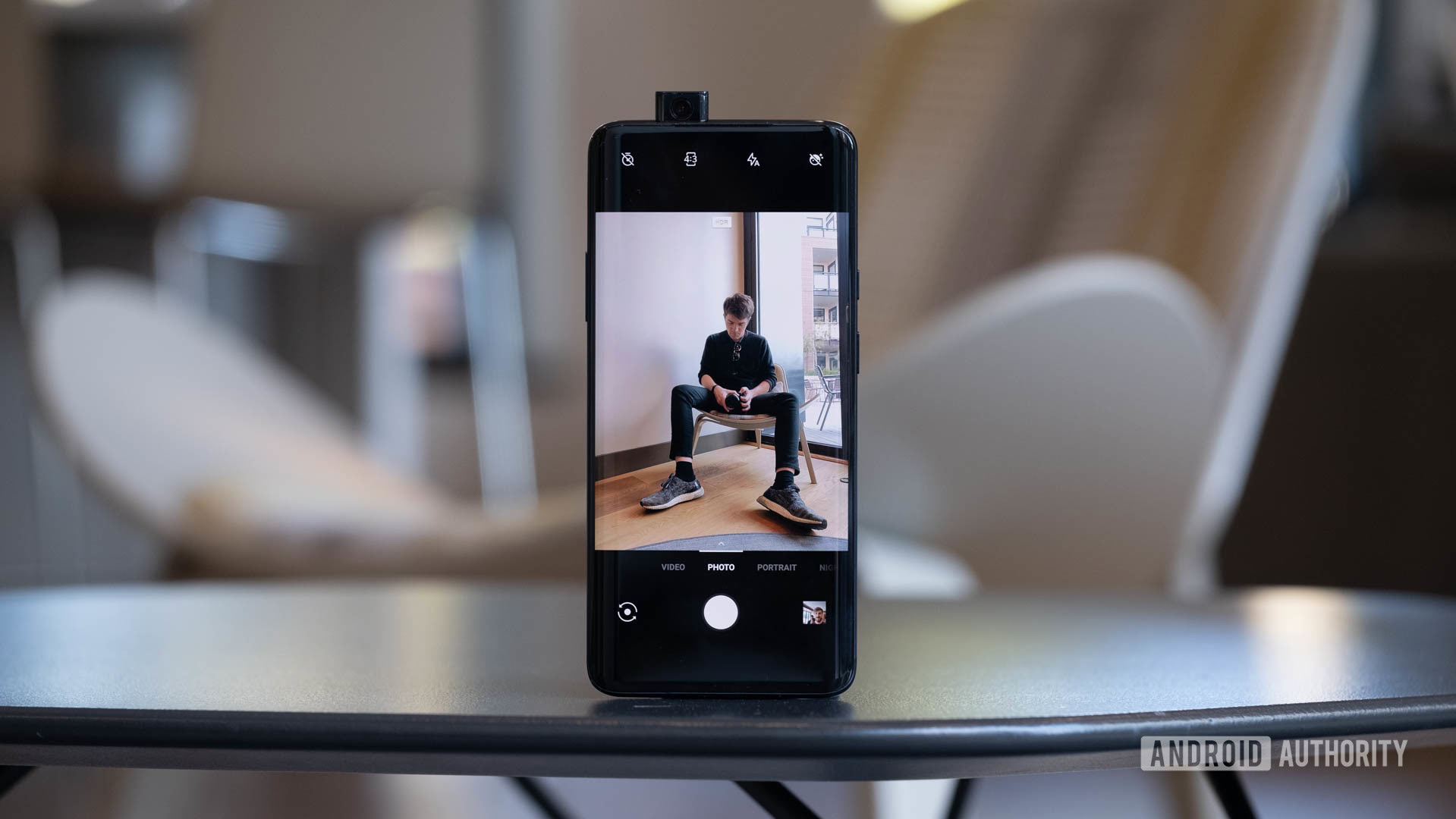
If part of your body is showing in the frame, you should also look into which poses you want to use. There’s the usual one in which people put their hands on their hips. You can also try to do something playful, like holding up a peace sign. Maybe wave to the camera? You could go all out and hold your arm above your head for a more dramatic look. The possibilities are endless.
Let the environment help

What kind of selfie are you trying to shoot? Sometimes images are more about the surroundings, such as when visiting important landmarks, or if you’re trying to show people you accomplished something. Maybe you want to show people a beautiful view. In this case, you’ll want to look into what’s around you and what would make your selfie more impressive.
When trying to show your surroundings, maybe it’s a good idea to switch to a wider-angle camera, if you have one. If not, you can always try extending your arm further and reducing the amount of space your face and body take within the frame, so that more of the background shows up.
If you want the selfie to be more about you, then try to find a background that is as clean and simple as possible. Cluttered backgrounds often have distractions.
Try portrait mode
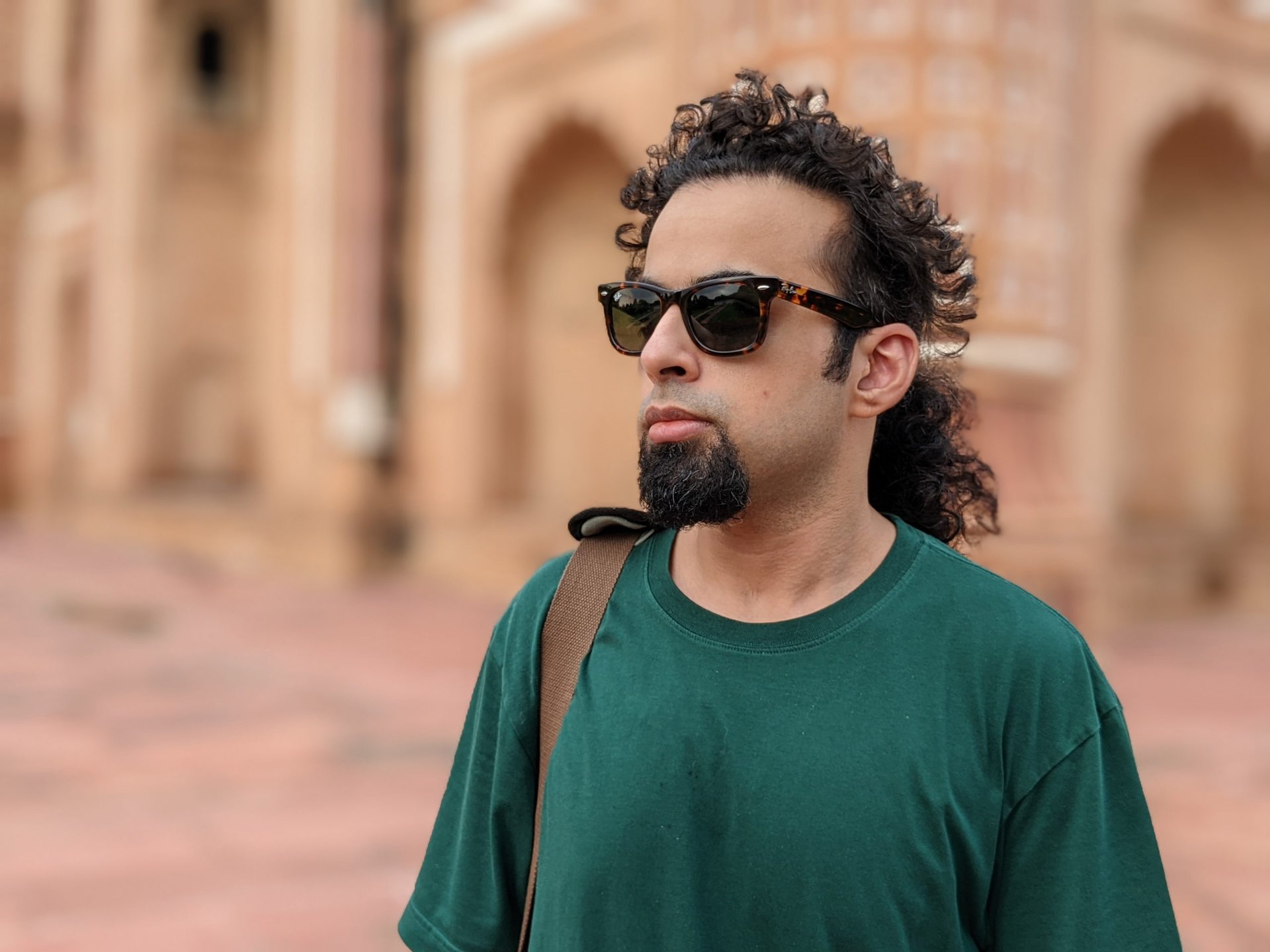
Dhruv Bhutani / Android Authority
Google Pixel 6a Portrait
Now, if you want to take a selfie with a cluttered background and want them to blend more, you can try portrait mode. Most modern smartphones have a form of portrait mode. For starters, these tend to improve the look of selfies, overall. Computational photography can help clear up your skin, improve exposure, brighten eyes, whiten teeth, and more. Portrait mode can also blur the background and create a beautiful bokeh effect.
Just make sure you use blur intelligently. You don’t want to blur out the background if you’re trying to showcase where you are.
Use the right settings
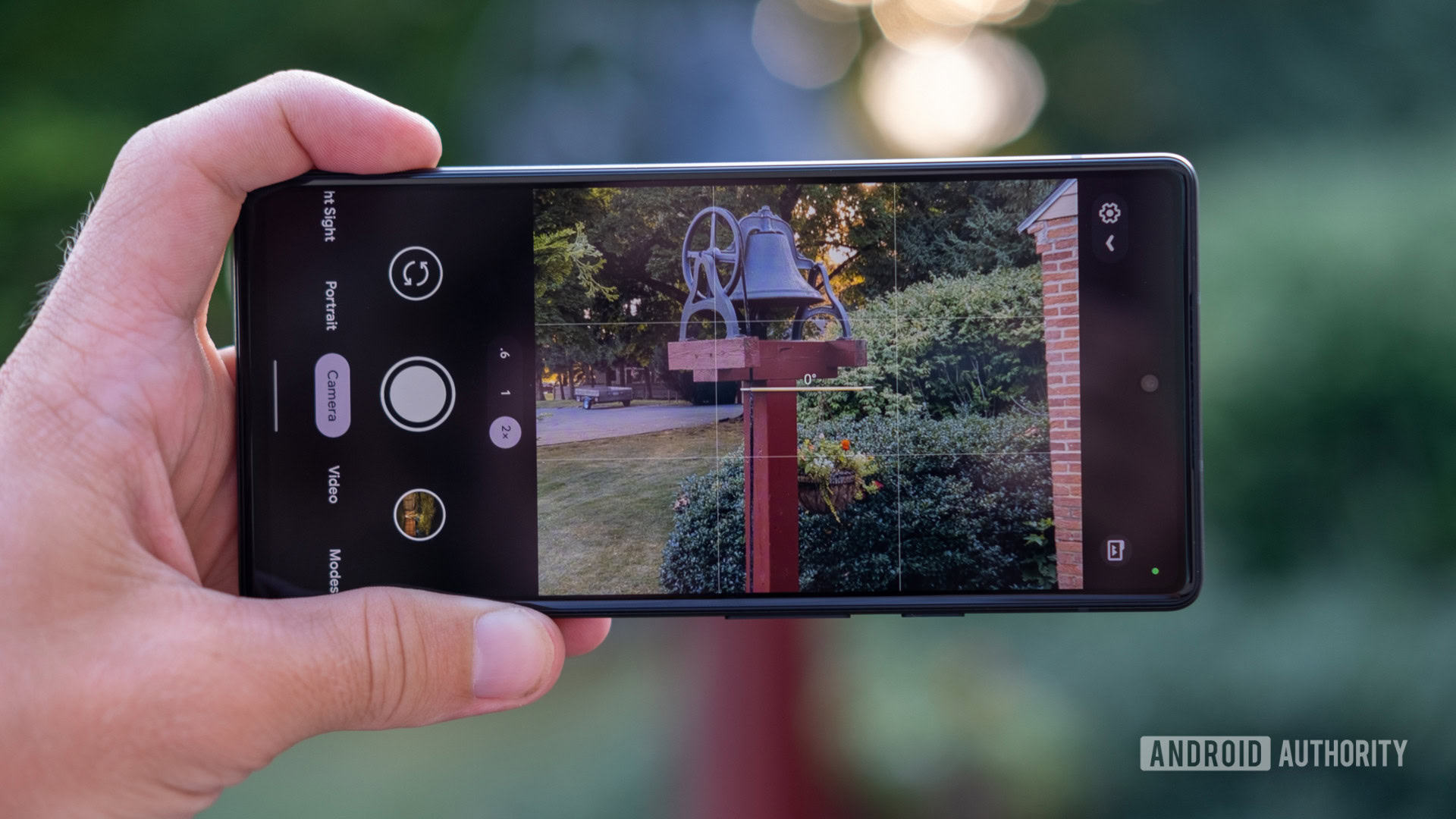
Ryan Haines / Android Authority
Portrait mode is only the tip of the iceberg when it comes to smartphone camera settings you can try. If you want to get more playful, many phone cameras also have filters, which you can use to add unique effects to your images.
Different phones have different capabilities, so you should explore them to see what’s available to you. One you should definitely turn on is HDR, especially if you want a more evenly lit selfie. As mentioned above, you should switch to a wider-angle lens if you have one at your disposal. This will help cover more of the background, or fit more people in the frame.
Most phones will also have a selfie flash option, which will essentially use the screen as a source of light. The phone will flash a white screen when shooting in this mode. This is helpful when trying to take a good selfie in darker environments.
Accessorize
Selfies are all about personality, right? A big part of what you want to portray is expressed by what you wear, what’s around you, and things that show what you’re doing. For example, if you’re at a coffee shop, add some personality to your photo by making sure your cup of coffee somehow shows up in the frame. Maybe a book next to it will be a good addition. You can also try adding hats, jewelry, sunglasses, and other accessories. Whether you’re wearing them or they show up in the image.
We should also mention there are also accessories for improving your selfie photos. You can try things like gimbals, selfie sticks, portable lights, and more. These provide an easy way to upgrade your smartphone camera.
Try editing your selfies
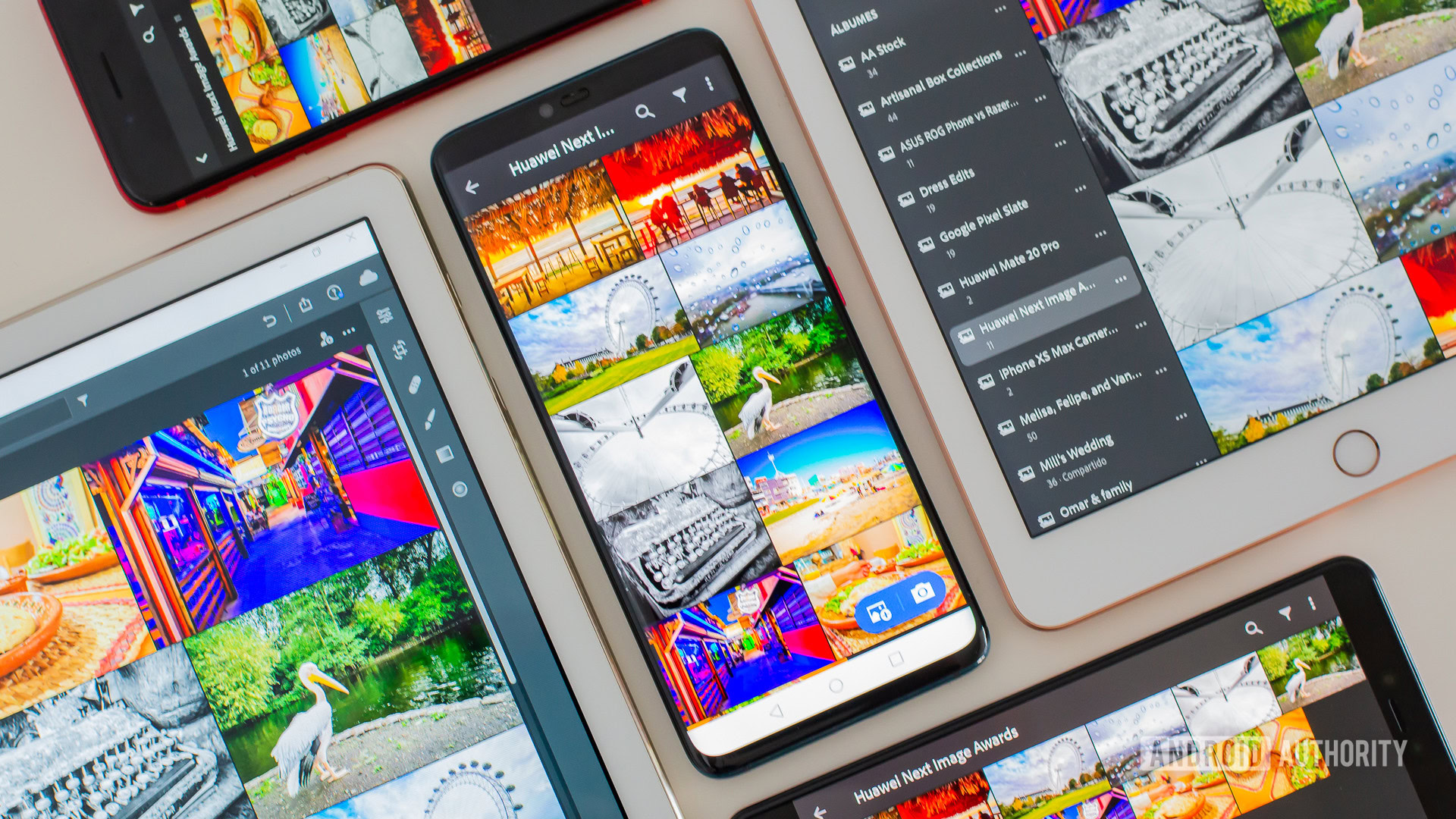
Edgar Cervantes / Android Authority
For most photographers, shooting a good image is only half the battle. Now it’s time to edit it. Try learning how to edit, at least at a basic level. This can honestly take your photos from average to extraordinary.
These don’t have to be complex edits, either. Something as simple as improving exposure, making colors more vibrant, and spot-healing some distractions can do wonders. We have guides for editing in Snapseed and Lightroom, if you need some tips for improving your shots with some simple modifications.
Does the camera phone matter?
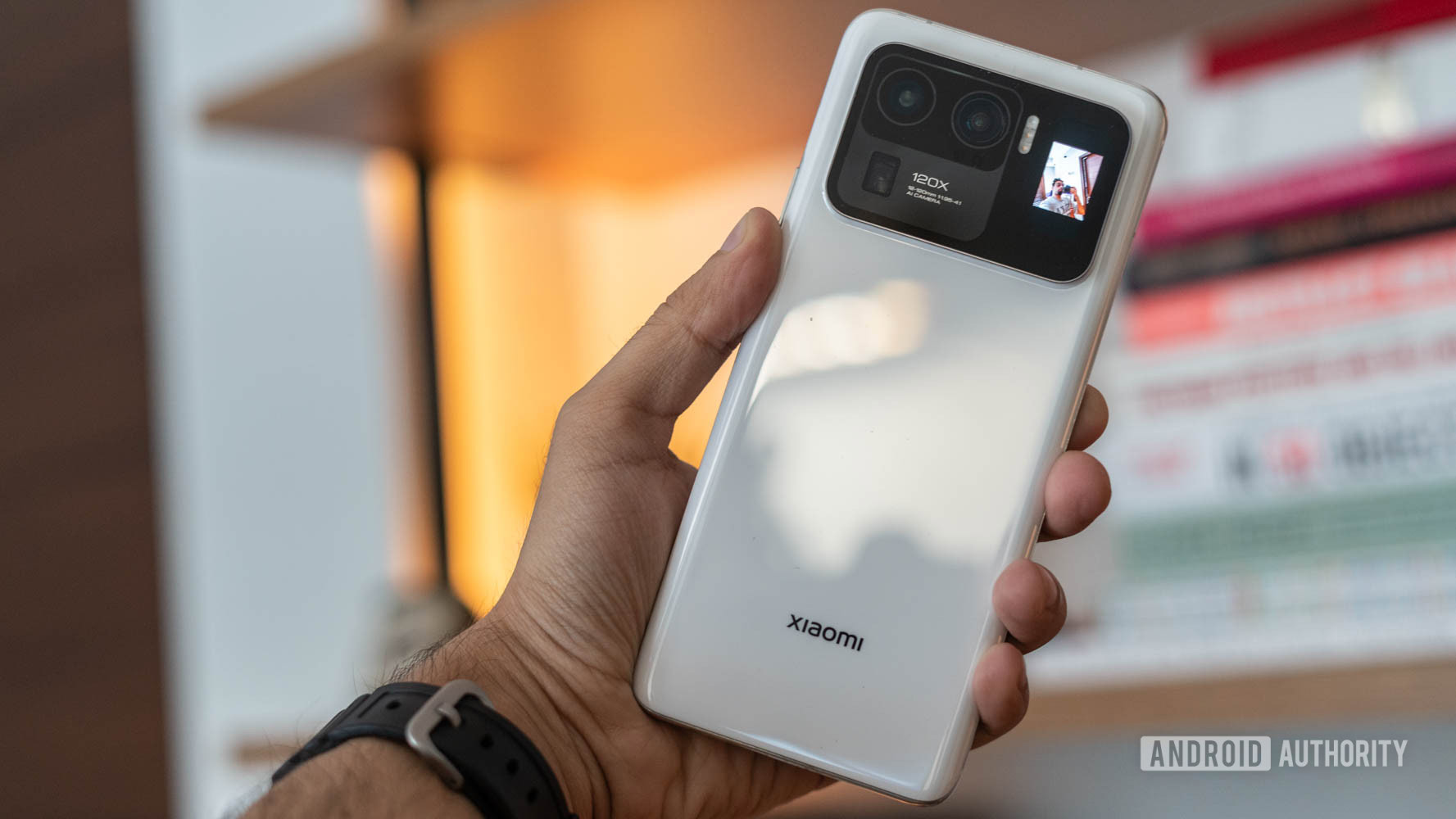
Dhruv Bhutani / Android Authority
As photographers, we love to argue that equipment doesn’t matter. The truth is that this statement is only partly true. Learning more about composition, color theory, and adding personality to a photo will definitely make a more significant difference in taking a good selfie. That said, it is true that some cameras are better than others. Especially in the world of smartphone photography, in which many smartphones come with better hardware and improved tools that can help you more easily take a better photo. Additionally, smartphone selfie cameras tend to have lower image quality overall.
If you can, you should try using the rear cameras, which are commonly better than the front-facing shooters. Some phones make this easier, such as foldable devices, and some unique phones that have rear viewfinders made explicitly for taking selfies. One clear example is the Xiaomi Mi 11 Ultra.
FAQs
A selfie is a photograph in which the photographer shoots an image of him or herself. This has become a very common practice since the boom of smartphones. People now have excellent cameras in their pockets.
In smartphones, rear-facing cameras are commonly much better than front-facing cameras. Some manufacturers have tried to be the exception, but devices with equal or better front-facing cameras are scarce.
If your phone or camera app has the ability to shoot images in RAW format, it should be able to do so regardless of which camera it’s using.
[ad_2]